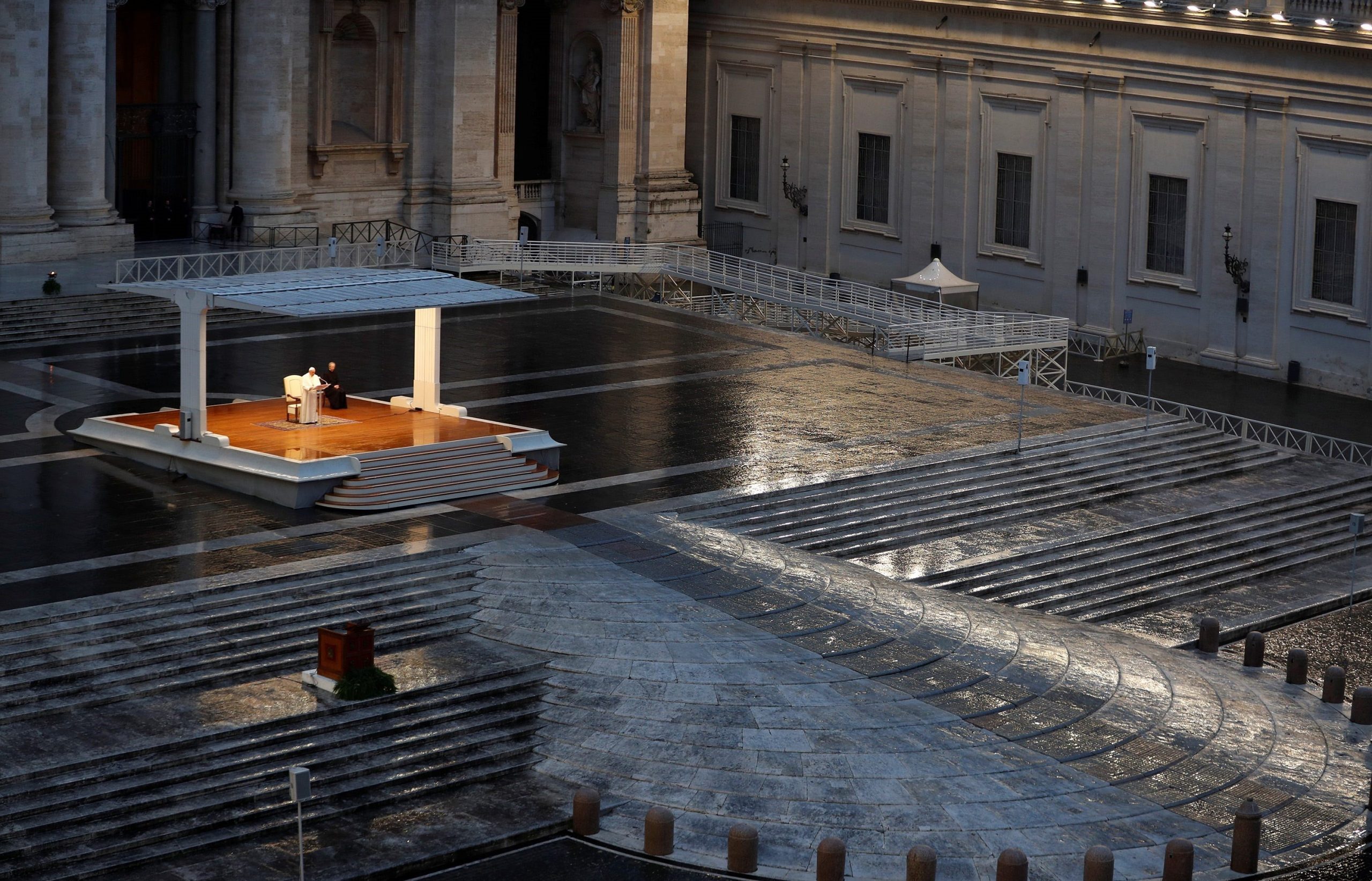Fr Paolo Consonni, MCCJ
12th Sunday in Ordinary Time Year B
“A great windstorm arose, and the waves beat into the boat, so that the boat was already being swamped. But he was in the stern, asleep on the cushion; and they woke him up and said to him, “Teacher, do you not care that we are perishing?” He woke up and rebuked the wind, and said to the sea, “Peace! Be still!” Then the wind ceased, and there was a dead calm. He said to them, “Why are you afraid? Have you still no faith?” (Mk 4:37-40)
I totally sympathize with the fearful disciples in the story of Jesus’ calming the storm described in this Sunday’s Gospel (Mk 4:35-41). Their boat, caught in the storm, was already taking on water. They had all the reasons to be afraid. I remember once being on a flight through long and heavy turbulence. I tried to stay calm by repeating to myself there was nothing to be scared about. I said a prayer in my heart. I tried to breathe deeply. Despite all I tried to do my body could not lie: rapid heartbeat, tense muscles, racing thoughts. My reactions indicated fear. Remaining calm during an emergency is not easy because we are wired with this biological mechanism —fear, which is designed to keep us alive by activating our attention and our adrenaline, so that we might be ready to respond to potentially harmful situations. In other words, it is healthy to be scared.
Sometimes, this mechanism gets stuck on activation, and we overestimate the danger. Our past traumas, especially those from our childhood, leave an unconscious mark on our memory which can influence our perception and lead us to misjudge the gravity of some situations. This can result in paralyzing panic attacks or a generalized anxiety that lingers even after the danger has passed. We then become unable to take risks or to trust our resources, and open ourselves to the future. Therefore, fear must be kept in check, lest it dominate our lives and our choices. If we succumb to fear, we will never make it “across to the other side”, which is the destination to which Jesus wanted to lead the disciples (v. 38). More than a place, “the other side” symbolizes a space beyond our comfort zone where we can grow as persons and as believers. This journey always implies dangers and challenges.
While the disciples, caught in the storm, were clearly panicking, Jesus had the exact opposite reaction: He was comfortably sleeping on a cushion in the stern. Far from being an irresponsible attitude of “not caring”, as the disciples rebuked Him, His sleep expressed a deep trust in the Father and His plan. Jesus entered “the deep sleep of His death” with the same trust. The Church, represented by the disciples, is then called to have faith in Jesus’ presence and power, even when He might appear to be absent from our lives and from the events of human history, as if He is asleep.
I vividly recall the words that Pope Francis pronounced in the empty St. Peter Square on March 27, 2020, during a prayer service at the beginning of the Covid pandemic, a storm which took the whole world by surprise and caused so much sufferings. Recalling this episode of Jesus calming the storm, pope Francis said: “’Why are you afraid? Have you no faith?’ Lord, you are calling us, calling us to faith. Which is not so much believing that you exist, but coming to you and trusting in you. […] Faith begins when we realize we are in need of salvation. We are not self-sufficient; by ourselves we sink. We need the Lord, like ancient navigators needed the stars. Let us invite Jesus into the boats of our lives. Let us hand over our fears to him so that he can conquer them. Like the disciples, we will experience that with him on board there will be no shipwreck. Because this is God’s strength: turning to good everything that happens to us, even the bad things. He brings serenity into our storms, because with God life never dies”.
Just like the disciples facing the storms of life, we cannot avoid feeling scared, and it is not healthy to repress our fear. However, we can choose how to respond to it. First of all, we might need to humbly recognize and accept it because we are not heroes. We then should “awake Jesus” in our life, by becoming aware of His presence and by entering into dialogue with Him about our fears, so that we might feel His calming action in our hearts and minds: ““Peace! Be still!” (v. 39). And if none of this works, simply let Jesus sleep and peacefully accept his apparent inaction, as St. Therese of the Child Jesus once wrote in her diary. This too is a sign of trust and gives us serenity: He has his own timing. And with courage, let us continue our journey “to the other side”.


 Follow
Follow


